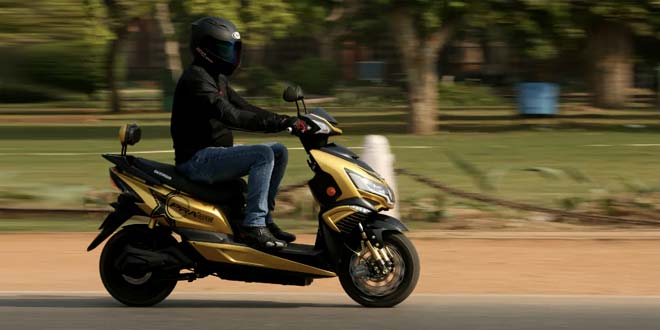New Delhi: The Union cabinet might approve the much awaited second phase of the incentive scheme for electric vehicles (EVs) under the Faster Adoption and Manufacturing of Hybrid and Electric Vehicles (or FAME II) by the end of this month. FAME was launched by the Ministry of Heavy Industries and Public Enterprises in 2015 and envisages that a 30 per cent of the automobile sold in India will be electric vehicles by 2030. It aims at promoting cleaner mobility alternatives and reducing the country’s dependency on imported fossil fuels.
With an expected outlay of Rs. 5,500 crore, FAME II, will be spanning over a period of five years, the government will be focusing on boosting demand for EVs and creating the charging infrastructure. Once introduced, here is what FAME II, is expected to bring with it:
1. Higher The Battery Power, Higher The Incentives
FAME II is likely to offer a subsidy of Rs. 10,000 per Kilowatt Hour (KWH) of battery to the buyers for e-cycles, electric two-wheelers, three-wheeler, cars, and hybrid cars. The subsidy being offered in FAME I was up to Rs. 22,000 to the buyers in case of electric two-wheelers and Rs, 1.24 lakh in case of electric four-wheelers. For e-buses, uniform buyer incentive at Rs. 20,000 per KWH has been proposed.
2. Incentives For Single Battery Two-Wheelers Are Expected To Come Down
According to an industry expert, FAME II the incentives for electric two-wheelers are expected to come down. This is because most electric two-wheelers running in India today use low power- 1KWH, single battery. Incentives for such two-wheelers which give a speed of 40km/hr and range of 60-70 Km per full charge will reduce from the current Rs. 22,000 to Rs. 10,000, making them costlier by Rs. 12,000.
According to Jitendra Shah of Jitendra EV, a Nashik based EV manufacturer that makes electric scooters said that to be able to avail the proposed incentives, electric two-wheeler makers will have to add more batteries, which in turn will escalate the cost and reduce the demand.
3. Exemption Of Road Tax, Registration Fees And Parking Charges
Under FAME II, the users of electric and hybrid vehicles will be exempted from paying road tax, registration fee, and parking charges. MoHIPE may make these incentives as a pre-condition for states to be included in the FAME II.
4. 100 Per Cent Electric Public Transport
FAME II may focus on making the country’s public transport system including buses, taxis, and auto-rickshaws fully electric in the coming five years.
5. Robust Charging Infrastructure
FAME II may target building a robust charging infrastructure for EVs. The target is to have at least one charger in the area of 3Km square. The government may also include provisions for encouraging indigenous developing of batteries.
According to an official of two-wheelers manufacturing firm, if the government goes ahead with the proposed incentives, the sale of electric three-wheelers and private four-wheelers may see a boost but the sale of two-wheelers, which account for a big portion of EVs in India, may go down considerably. Due to the predicted drop in the sale of two-wheelers, the government can re-consider the incentives during the implementation period of FAME II.
Also Read: Budget 2019: Electric Vehicle Industry Cheers As E-Mobility Makes It To Government’s Priority List
NDTV – Dettol Banega Swachh India campaign lends support to the Government of India’s Swachh Bharat Mission (SBM). Helmed by Campaign Ambassador Amitabh Bachchan, the campaign aims to spread awareness about hygiene and sanitation, the importance of building toilets and making India open defecation free (ODF) by October 2019, a target set by Prime Minister Narendra Modi, when he launched Swachh Bharat Abhiyan in 2014. Over the years, the campaign has widened its scope to cover issues like air pollution, waste management, plastic ban, manual scavenging and menstrual hygiene. The campaign has also focused extensively on marine pollution, clean Ganga Project and rejuvenation of Yamuna, two of India’s major river bodies.




























